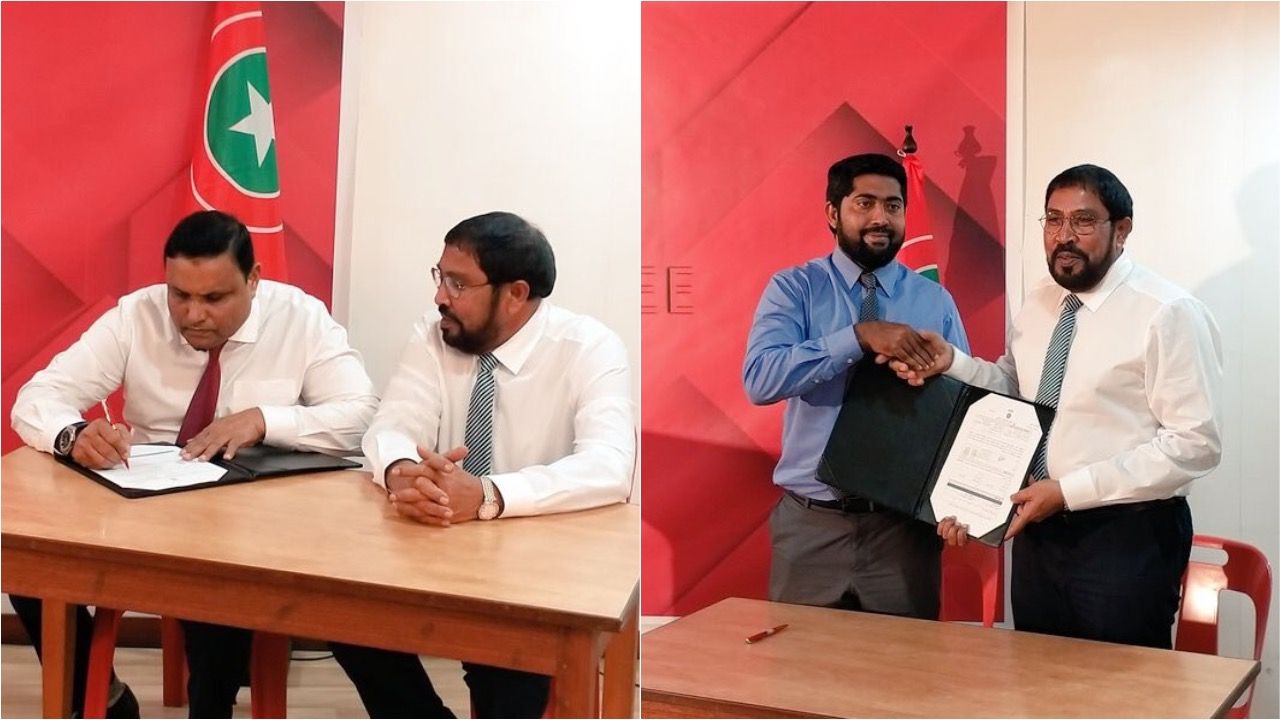Three more lawmakers join JP
The JP has added 12 MPs to its ranks since September’s presidential election.

28 Nov 2018, 09:00
MPs Ali Shah, Hussain Manik Dhon Manik and Umar Hussain have joined the Jumhooree Party amid a recruiting spree by the second largest party in the ruling coalition.
With the new members, the JP has now added 12 MPs to its ranks since former president Abdulla Yameen’s election loss in September.
Shah and Hussain Manik, both of whom were former ruling party lawmakers, handed over their membership forms to JP leader Gasim Ibrahim at a ceremony Wednesday night.
Shah, MP for the Fuvahmulah North constituency, was among a dozen lawmakers who were reinstated last month after more than a year out of parliament. They were deemed to have lost their seats when they defected from the Progressive Party of Maldives in July last year.
Become a member
Get full access to our archive and personalise your experience.
Already a member?
Discussion
No comments yet. Be the first to share your thoughts!
No comments yet. Be the first to join the conversation!
Join the Conversation
Sign in to share your thoughts under an alias and take part in the discussion. Independent journalism thrives on open, respectful debate — your voice matters.




